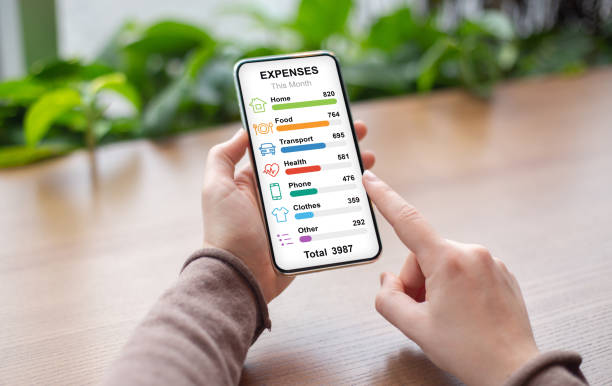Introduction
Financial planning is essential for anyone aiming for a secure and prosperous future. However, Millennials and Gen Z face unique challenges and opportunities that set them apart from previous generations. With rising living costs, student loan debt, and economic uncertainties, effective financial planning is more critical than ever for these cohorts. This article explores key financial planning strategies tailored to the needs and circumstances of Millennials and Gen Z.

Understanding the Financial Landscape
Millennials and Gen Z have grown up in a rapidly changing world, marked by technological advancements and significant economic events, such as the 2008 financial crisis and the COVID-19 pandemic. These experiences have shaped their financial behaviors and attitudes.
Millennials, many of whom are now in their prime working years, often struggle with student loan debt, housing affordability, and delayed milestones like homeownership and starting a family.
Gen Z, just entering the workforce, face a volatile job market and the pressure of starting their financial journey amid economic instability. Both generations are highly tech-savvy, valuing convenience and transparency in financial services.
Key Financial Planning Strategies
1. Establishing a Budget and Tracking Expenses
Creating a budget is a foundational step in financial planning. Both Millennials and Gen Z should start by tracking their income and expenses to understand their spending habits. Numerous budgeting apps and tools can simplify this process, making it easier to categorize expenses and identify areas for savings.
Action Steps:
- Use budgeting apps like Mint, YNAB (You Need A Budget), or PocketGuard.
- Set realistic spending limits for discretionary expenses.
- Regularly review and adjust the budget to align with changing financial goals.

2. Building an Emergency Fund
An emergency fund provides a financial safety net in case of unexpected expenses, such as medical emergencies, job loss, or car repairs. Financial experts typically recommend saving three to six months’ worth of living expenses in a readily accessible account.
Action Steps:
- Start with a small, achievable savings goal (e.g., $500-$1,000).
- Automate savings to a dedicated emergency fund account.
- Gradually increase the fund until it covers three to six months of expenses.
3. Managing Debt
For many Millennials and Gen Z, student loans, credit card debt, and other liabilities can be significant financial burdens. Effective debt management involves prioritizing high-interest debt and exploring options for refinancing or consolidation to lower interest rates.
Action Steps:
- Make a list of all debts, including interest rates and minimum payments.
- Use the debt avalanche or debt snowball method to pay off debts strategically.
- Consider refinancing student loans for lower interest rates or better terms.
4. Investing for the Future
Investing is crucial for long-term financial growth and achieving goals like retirement, homeownership, or higher education. Starting early allows Millennials and Gen Z to take advantage of compound interest, significantly growing their wealth over time.
Action Steps:
- Open a retirement account, such as a 401(k) or IRA, and contribute regularly.
- Explore low-cost index funds or ETFs for diversified investment portfolios.
- Use robo-advisors like Betterment or Wealthfront for automated, low-fee investment management.

5. Planning for Major Life Events
Major life events, such as buying a home, getting married, or having children, require careful financial planning. Millennials and Gen Z should anticipate these expenses and incorporate them into their financial strategies.
Action Steps:
- Estimate the costs associated with major life events and create a savings plan.
- Consider life insurance and estate planning to protect loved ones.
- Review and adjust financial goals as life circumstances change.
Leveraging Technology for Financial Planning
Tech-savvy Millennials and Gen Z can leverage digital tools and resources to enhance their financial planning efforts. Fintech solutions offer convenience, transparency, and personalized advice.
Popular Tools:
- Budgeting Apps: Mint, YNAB, PocketGuard
- Investment Platforms: Robinhood, Betterment, Wealthfront
- Savings Apps: Acorns, Chime, Digit

The Importance of Financial Education
Financial literacy is crucial for making informed decisions. Millennials and Gen Z should seek out resources to improve their financial knowledge, such as online courses, webinars, podcasts, and books.
Recommended Resources:
- Websites like Investopedia and NerdWallet
- Books such as “Rich Dad Poor Dad” by Robert Kiyosaki and “Your Money or Your Life” by Vicki Robin and Joe Dominguez
- Financial podcasts like “The Dave Ramsey Show” and “BiggerPockets Money Podcast”
Conclusion
Financial planning for Millennials and Gen Z is not just about managing money—it’s about building a foundation for a secure and fulfilling future. By establishing a budget, building an emergency fund, managing debt, investing wisely, and planning for major life events, these generations can navigate their unique financial challenges and seize opportunities. Leveraging technology and continually educating themselves on financial matters will further empower Millennials and Gen Z to achieve their financial goals and attain financial independence.

